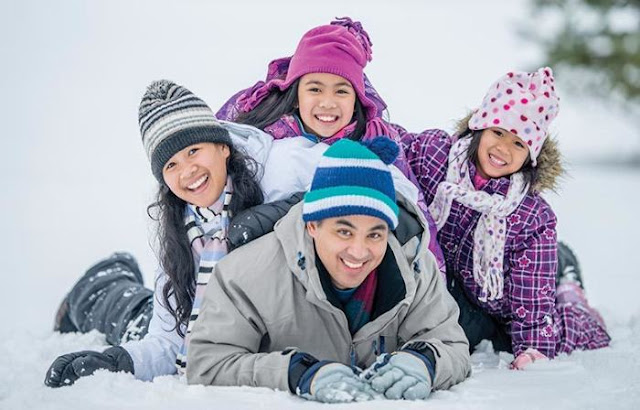Leading Health Advantages of Cold Weather
Cold weather often gets a bad reputation for various health challenges it brings, but it also offers several health advantages that might be surprising. Embracing and making the most of the colder temperatures can bring about positive effects on both physical and mental well-being. Here are some leading health advantages of cold weather:
1. Improved Sleep Quality:
Cold weather can create an optimal environment for sleep:
Enhanced Sleep: Cooler temperatures promote better sleep by
allowing for a cooler sleeping environment, which is conducive to falling
asleep faster and experiencing deeper, more restorative sleep.
Regulation of Body Temperature: Sleeping in cooler
conditions may help regulate body temperature, leading to a more comfortable
and restful night's sleep.
2. Boosted Metabolism:
Exposure to colder temperatures can stimulate the body's
metabolism:
Calorie Burning: The body works harder to maintain a stable
core temperature in cold conditions, potentially increasing calorie expenditure
and aiding weight management.
Brown Fat Activation: Cold weather may activate brown
adipose tissue (brown fat), which burns calories to generate heat, potentially
assisting in weight loss.
3. Strengthened Immune System:
Cold weather exposure might have beneficial effects on
immune function:
Increased Immunity Response: Studies suggest that exposure
to colder temperatures may stimulate the immune system, potentially enhancing
its ability to fight off infections.
Cold Therapy Benefits: Cold exposure, such as cold showers
or cryotherapy, is believed to boost the immune system's resilience.
4. Improved Mood and Mental Health:
Cold weather can positively impact mental well-being:
Enhanced Mood: Fresh, crisp air and exposure to natural
light during cold weather can improve mood and alleviate symptoms of seasonal
affective disorder (SAD).
Increased Alertness: Cooler temperatures might contribute to
increased alertness and mental clarity.
5. Better Physical Performance:
Cold weather might lead to improved physical performance and
endurance:
Increased Endurance: Some athletes and outdoor enthusiasts
find that cooler temperatures improve their endurance and stamina during
physical activities.
Improved Recovery: Cold exposure after exercise can help
reduce inflammation and muscle soreness, potentially aiding in faster recovery.
6. Potential Pain Relief:
Cold weather can provide relief for certain types of pain:
Reduced Inflammation: Cold temperatures may help reduce
inflammation, providing relief for conditions like arthritis or muscle
soreness.
Numbing Effect: Cold weather can have a numbing effect,
temporarily reducing sensations of pain.
7. Enhanced Skin Health:
Cold weather might have positive effects on skin:
Skin Rejuvenation: Cooler temperatures can help tighten
pores, reduce oiliness, and potentially improve overall skin appearance.
Relief for Skin Conditions: Cold weather might alleviate
symptoms of certain skin conditions, such as eczema or acne, for some
individuals.
Tips for Enjoying Cold Weather Safely:
Layer Clothing Appropriately: Dress in layers to stay warm
and regulate body temperature while outdoors in cold weather.
Stay Hydrated: Drink plenty of fluids, as the body can still
become dehydrated in colder temperatures.
Protect Skin and Extremities: Use moisturizers and wear
appropriate clothing to protect skin from cold and wind.
Exercise Caution in Extreme Conditions: Avoid prolonged
exposure to extreme cold or severe weather conditions to prevent frostbite or
hypothermia.
Conclusion:
While cold weather does bring challenges, it also offers several health advantages. Embracing the colder temperatures and making the most of the unique benefits can positively impact sleep quality, metabolism, immune function, mental health, physical performance, and even skin health. By adopting appropriate precautions and staying mindful of personal comfort levels, individuals can enjoy the health advantages that colder weather brings. However, it's crucial to balance exposure to cold temperatures and take necessary precautions to ensure safety and well-being during winter months.

.jpg)
Comments
Post a Comment